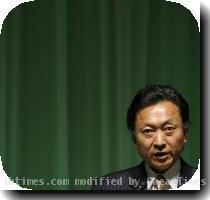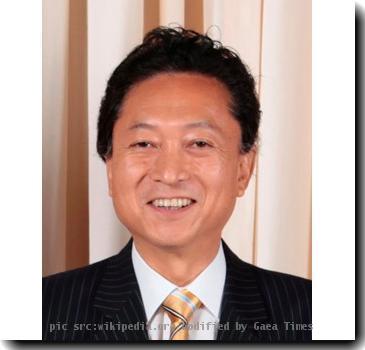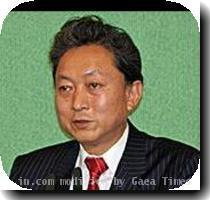Okinawa election result prompts Japanese leader to waver on US military base
By Malcolm Foster, APMonday, January 25, 2010
Japan PM says he’ll reassess US Marine base pact
TOKYO — Japan’s prime minister pledged Monday to “start from scratch” in re-examining a key military deal with Washington on relocating American troops, risking the ire of its key ally after a local election in Okinawa showed that residents oppose any new Marine base in their region.
The U.S. reacted cautiously Monday, issuing a statement that it was “consulting closely” with Tokyo on the issue.
After the small Okinawan city of Nago elected a mayor opposed to moving the facility there, Japan will be hard pressed to honor its 2006 agreement to relocate a U.S. military base on the southern island. Sunday’s vote is reverberating to Tokyo and beyond, widening an already growing rift with Washington.
Prime Minister Yukio Hatoyama appears to be caught in a no-win situation of either antagonizing local citizens or Japan’s main alliance partner. With upper house elections this summer, he can’t run roughshod over voters’ voices.
“He can’t make a decision now that’s going to make both the Americans and Okinawans happy,” said Jeff Kingston, Temple University Director of Asian Studies in Tokyo.
“It does give Hatoyama a bit of cover: ‘Hey, I have to listen to the voice of the people.’ But I don’t think that’s going to cut much weight with Washington,” Kingston added.
At issue is a 2006 plan to reorganize U.S. troops in Japan. A key sticking point in that agreement forged between Washington and Tokyo’s previous conservative government involves moving Futenma Marine Corps air station in the crowded, southern part of the island to a coastal area near Nago — a move that many locals oppose.
Hatoyama, who swept into power in September, has frustrated Washington by refusing to commit to the move to Nago at a time of rising Asia security concerns from North Korea’s nuclear program and China’s growing military strength. One member of his Cabinet, the left-leaning Mizuho Fukushima, has flatly said she wants Futenma moved off Japanese territory altogether.
U.S. officials have insisted the agreement must be kept. Backing out could scrap the whole realignment plan, which would lighten the burden on Okinawa — where more than half the 47,000 U.S. troops in Japan are based — by sending 8,000 Marines to the U.S. territory of Guam.
Reacting Monday to the Nago vote, Hatoyama said the election reflected the will of the people and that Tokyo would re-examine all its options on the Futenma issue.
“The country will start from scratch on this issue and take responsibility to reach a conclusion by the end of May,” he told reporters.
The U.S. State Department refrained from criticizing Hatoyama or pushing its stance in a statement issued Monday.
“We are consulting closely with the Japanese government on the Futenma relocation issue,” the statement said. “Decisions related to national security, including base realignment, are typically made by central governments, after taking into account relevant factors, including the interests of base-hosting communities.
Japanese officials have examined other possible locations on Okinawa, and some have even traveled to Guam, to look for alternative relocation sites, but none have fit the bill. And Washington has insisted on sticking with Nago, saying it is the best option.
Ever since winning August’s elections, ending the conservatives’ five decades of nearly uninterrupted rule, Hatoyama has said he wants a more independent relationship with Washington and has suggested he wants revisions in the 2006 military realignment plan.
Still, he has said the U.S.-Japan security pact — now in its 50th year and which obligates the U.S. to respond to attacks on Japan — is the cornerstone of Japanese diplomacy.
Nago’s mayor-elect, Susumu Inamine, an independent, ran with the support of Hatoyama’s ruling Democratic Party. He won 52.3 percent of the vote after campaigning against any expansion of U.S. military presence in the area, while the incumbent argued that the base would bring jobs and investment.
Meanwhile, China is probably watching the widening rift between Washington and Tokyo with interest, experts say — even as it welcomes Hatoyama’s overtures to build stronger ties with Beijing and other Asian neighbors.
“From the Chinese side, the debate about Okinawa and what to do with bases in the framework of the security pact has been looked at very favorably, that Japan is not simply following old contracts,” said Martin Schulz, a research fellow at Fujitsu Research Institute in Tokyo.
Domestically, perceptions of Hatoyama’s indecisiveness on Futenma — and alienating the United States — could undermine his party’s performance in this summer’s elections. Already, the government’s approval ratings have fallen amid a potential scandal involving a key party power-broker and persistent weakness in the economy.
“Prime Minister Hatoyama is responsible for a delayed decision (on Futenma) due to his wishy-washiness and lack of determination,” the Yomiuri newspaper said in an editorial Monday. “Without a relocation site … Japan-U.S. relations would worsen and falls into a critical situation. Is that what the Hatoyama government wants?”
Associated Press Writers Mari Yamaguchi and Jay Alabaster contributed to this report.
Tags: Asia, East Asia, Japan, Military Facilities, North America, Tokyo, United States, Yukio Hatoyama


